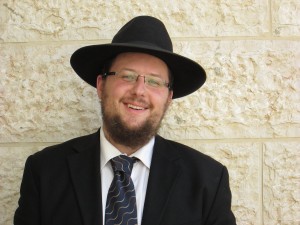 Tell us about yourself and how many books you have written.
Tell us about yourself and how many books you have written.
I graduated Emek Hebrew Academy and Yeshiva Gedolah of Los Angeles in California and then went on to study in the Mir Yeshiva in Jerusalem and Beth Medrash Govoha in Lakewood. I received Rabbinic ordination from several leading figures in Jerusalem, including Rabbi Moshe Sternbuch, Rabbi Zalman Nechemia Goldberg, and Rabbi Yosef Yitzchok Lerner. My articles have been published in several prestigious journals including Jewish Bible Quarterly (Jerusalem), Kovetz Hamaor (New York), Kovetz Kol HaTorah (London), and Kovetz Iyun HaParsha (Jerusalem). I am currently a fellow at the Kollel of Yeshivas Mir in Jerusalem and lives with my wife and children in Beitar Illit, Israel.
To date, I have only written one book in English and that is Lashon HaKodesh: History, Holiness, & Hebrew (Mosaica Press).
What is the name of your latest book and what inspired it?
As mentioned above, my only book is Lashon HaKodesh: History, Holiness, & Hebrew (Mosaica Press). As you might realize, I have been a full-time Yeshiva student for more than a decade, so naturally my interest in this topic came about while sitting in the Beis Midrash learning Gemara. To be more precise, we were learning the beginning of Maseches Nedarim and on the very first page, the Pirush HaRan writes that Lashon HaKodesh is different from all other languages because all other languages are simply “an agreement of the nations.” That got me thinking: Can it really be true that all other languages are just a social contract, given that Hashem created the languages at the Tower of Babel? Then I wondered, In what way is Lashon HaKodesh different from all other language? And finally, I thought to myself, Why is it called Lashon HaKodesh anyways? So I set out to answer these questions, and in my quest came up with more and more questions. In the end, I realized that I had accrued a wide range of information about our beloved Hebrew language — and especially its history— and that nobody from the Orthodox community had ever written a comprehensive work on that topic. So I compiled everything I had and prepared it for publication.
Do you have any unusual writing habits?
My research usually starts in the Beis Midrash and I originally stuck to mostly traditional sources. In fact, my biggest and most important resources were the library in Beis Medrash Govoha in Lakewood (BMG), Otzar HaChochma, and — after we made aliyah — the library of the Mir Yeshiva in Jerusalem. After I decided to publish my findings, I turned to a number of prominent Rabbonim (including Rabbi Berel Wein, Rabbi Zev Leff, Rabbi Aharon Lopiansky, Rabbi Akiva Tatz, Rabbi Yitzchok Breitowitz, and Rabbi Sholom Kamenetsky), who very much appreciated my work. Several of them encouraged me to incorporate academic sources as well. So I started doing research online, putting Google to good use, utilizing my access to JSTOR articles, and corresponding with several professors. The academic component definitely enhanced my book; broadening its scope and giving it a more sophisticated, multifaceted character.
What are you working on now?
As I already noted earlier, I learn in Yeshivas Mir in Yerushalyim, which takes up most of my time and energy. I also give a weekly shiur on the Midrash Pirkei D’Rabbi Eliezer to a group of English-speaking men here in Beitar Illit (these shiurim are available for free at TorahDownloads.com), so that requires preparation and research as well. Once in a while I contribute to various journals, including the semi-academic Jewish Bible Quarterly, as well as several established rabbinic journals such as Kovetz Hamaor, Kovetz Kol HaTorah, Kovetz Chitzei Gibborim, and others. I recently joined a training program called Ohr LaGolah for aspiring Jewish leaders. For my next book, I would like to write more about topics in which academia and Torah intersect. I was thinking of writing about the history of avodah zarah (idolatry) — a topic which, believe it or not, has a lot to do with ancient world history and even archeology, as well as Tanach and Gemara.
Author Websites and Profiles
Reuven Chaim Klein Website
Reuven Chaim Klein Amazon Profile